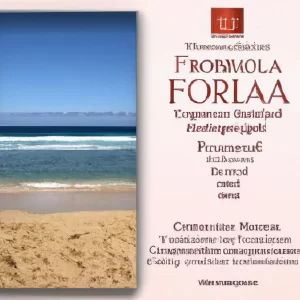Overview
When a family member or loved one passes away, the process of transferring their property and assets in New York can be complex and overwhelming. It involves legal steps, requirements, and considerations that must be carefully navigated. At Morgan Legal Group, a reputable law firm in New York City, we are dedicated to providing guidance and support through this challenging process. This comprehensive guide aims to assist you in understanding the steps involved in transferring property after death in New York, ensuring you have the necessary information during this difficult time.
Distinguishing Probate and Non-Probate Property
In New York, the transfer of property after death depends on whether the deceased’s estate undergoes probate or non-probate administration.
Probate Property
Probate property includes assets solely owned by the deceased individual without a designated beneficiary. These assets may consist of real estate, bank accounts, vehicles, personal belongings, and investments. If the deceased left a valid last will and testament, the property will be distributed according to their wishes through the probate process.
Non-Probate Property
Non-probate property encompasses assets with designated beneficiaries or held jointly with rights of survivorship. Examples include life insurance policies, retirement accounts, and jointly owned real estate. These assets pass directly to the named beneficiaries or surviving joint owners, bypassing the probate process.
Initiating the Probate Process
When an estate contains probate property, the initial step is to commence the probate process, typically overseen by the Surrogate’s Court in the county of the deceased’s residence at the time of their passing.
1. Filing the Petition
The executor named in the deceased’s will (or an appointed administrator if there is no will) must file a petition with the Surrogate’s Court to open the probate case. The petition should include information about the deceased, the will (if applicable), potential heirs, and the proposed executor or administrator.
2. Proving the Will’s Validity
The Surrogate’s Court must authenticate the validity of the will, typically involving providing witnesses who signed the will and other evidence to establish its authenticity. If the will is deemed valid, the court will grant letters of testamentary to the executor, officially empowering them to administer the estate.
3. Inventory and Appraisal
The executor must compile an inventory of all probate assets and appraise them to determine their fair market value as of the date of the deceased’s death. This inventory should include real property, bank accounts, investments, personal property, and other assets subject to probate.
4. Settling Debts and Taxes
Before distributing assets to beneficiaries, the executor must settle any outstanding debts and taxes owed by the estate. This may involve selling assets or using available funds to cover these obligations.
5. Distributing the Estate
Once all debts, taxes, and administrative expenses have been settled, the executor can proceed with distributing the remaining assets to the beneficiaries as outlined in the will.
Intestate Succession: When There’s No Will
If the deceased did not leave a valid will, their estate is considered intestate. In such cases, New York’s intestate succession laws will determine how the estate is distributed.
1. Spouse and Children
If the deceased is survived by a spouse and children (or their descendants), the spouse typically inherits the first $50,000 plus half of the remaining estate. The children or their descendants inherit the remaining half.
2. Spouse and Parents
If the deceased is survived by a spouse and parents but no children, the spouse inherits the first $50,000 plus half of the remaining estate, and the parents inherit the remaining half.
3. Spouse Only
If a spouse survives the deceased but has no children or parents, the spouse inherits the entire estate.
4. Parents Only
If a spouse or children do not survive the deceased, the parents inherit the estate.
5. Siblings
If the deceased is not survived by a spouse, children, or parents, the estate passes to the deceased’s siblings or their descendants.
6. No Surviving Relatives
If the deceased has no surviving relatives, the estate may escheat to the state of New York.
Non-Probate Property Transfer
Non-probate property does not pass through the probate process and is directly transferred to designated beneficiaries or surviving joint owners. However, certain steps need to be taken to ensure a smooth transfer.
1. Life Insurance Policies
Beneficiaries of life insurance policies must file a claim with the insurance company, providing a copy of the death certificate for the payout to be processed.
2. Retirement Accounts
Designated beneficiaries of retirement accounts can claim the assets directly from the account custodian upon the account holder’s death.
3. Jointly Owned Real Estate
Surviving joint owners of real estate automatically become the sole owner of the property upon the other owner’s death, requiring an update to the property’s title.
4. Bank Accounts
Bank accounts held jointly or with payable-on-death (POD) designations allow the surviving account holder or designated beneficiary to claim the funds without probate.
Utilizing Trusts to Avoid Probate
Creating a trust during your lifetime can help avoid probate for certain assets. A trust allows the transfer of ownership of assets to the trust, ensuring their distribution to beneficiaries without probate upon your death. Here are common types of trusts:
1. Revocable Living Trust
A revocable living trust is created during the grantor’s lifetime, allowing alterations or revocation as circumstances change. The grantor can manage the trust’s assets until their death or incapacity, after which the successor trustee distributes the assets to the beneficiaries without probate.
2. Irrevocable Trust
An irrevocable trust cannot be changed or revoked after creation without the beneficiaries’ consent, potentially reducing estate taxes and protecting assets from creditors.
3. Testamentary Trust
A testamentary trust is established through the grantor’s last will and testament, coming into effect after the grantor’s death. Although the will must go through probate, the trust’s assets can be managed and distributed according to the grantor’s wishes.
Transferring Real Estate
Transferring real estate after death in New York, whether probate or non-probate, involves specific procedures.
1. Transferring Probate Real Estate
For real estate, as part of the probate estate, the transfer process includes filing a voluntary administration, submitting a Real Property Transfer Tax Return, obtaining testamentary letters, and preparing and recording a new deed.
2. Transferring Non-Probate Real Estate
Transferring non-probate real estate is less complex, involving the provision of necessary documentation, such as a death certificate, to the county clerk’s office to update the property’s title.
Conclusion
Transferring property after death in New York can be daunting, but with the right legal guidance, it can be managed successfully. At Morgan Legal Group, our knowledgeable attorneys are well-versed in New York’s estate laws and are dedicated to assisting you during this challenging time. Whether you are dealing with probate property or non-probate assets or are considering using trusts to protect your estate, our team is here to help. Contact us today for a consultation, and let us navigate the legal complexities of property transfer after death in New York together.












